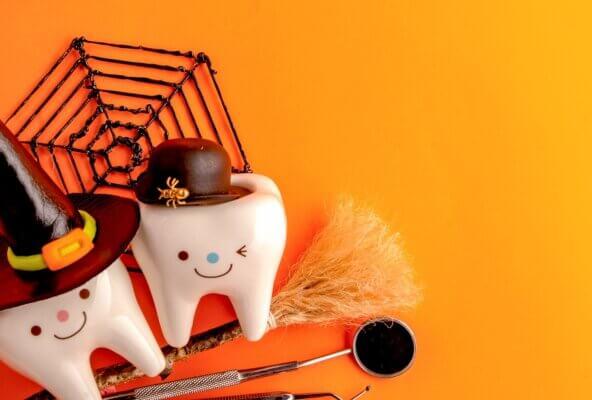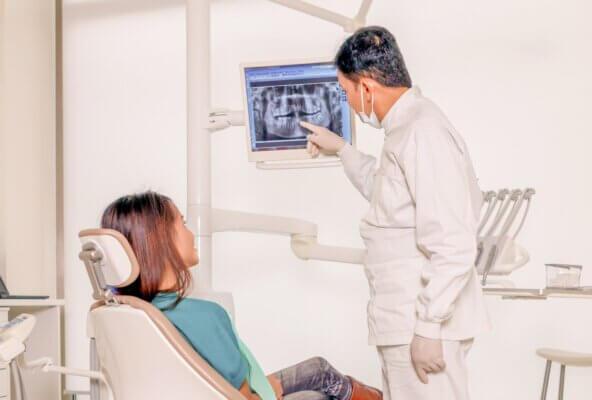
- First impressions drive trust: A clean, mobile-friendly website signals professionalism and modern care.
- Navigation and CTAs convert: Clear menus and appointment prompts make it simple for patients to take action.
- Content builds credibility: High-quality text, photos, and patient reviews reinforce trust in your practice.
- Security matters: HIPAA compliance and secure hosting protect sensitive patient data.
A well-designed dental website is often the first impression patients have of your practice. Prioritizing mobile-friendly design, clear navigation, engaging content, and secure HIPAA compliance builds trust, improves local visibility, and turns visitors into patients.
Exceptional dental website design is more than mere aesthetics; it is a powerful, dynamic tool for attracting and retaining patients. Your online presence is often the initial point of contact for potential patients, making a well-crafted website crucial. If your current website appearance isn’t attracting and retaining patients, it’s time to consider a full dental website redesign.
Effective website design is the backbone of successful digital marketing for healthcare professionals. Your dental website acts as a critical interface for current and potential patients, shaping their perception of your practice and influencing their decisions.
Designing a quality website isn’t easy. You might not be sure what the ideal website for a dentist looks like. That’s understandable. However, with a thorough website review and the right web design tips, you’ll be on your way to a well-designed site in no time.
This comprehensive guide will cover the essential web design elements and tips to improve web usability. We will cover key aspects that contribute to a positive experience for web users interacting with your health content, including:
- Creating responsive design and mobile-friendly layouts
- Crafting compelling website content
- Implementing effective dental SEO strategies
11 key elements of successful dental website design
A lot of thought goes into website creation. The more care you give your web pages, the more likely you are to have a well-designed website that stacks up against other ranking sites — also known as your competition.
Let’s dig into some actionable tips that will help turn your existing website into a favorite for all things regular dental care.
1. Mobile-friendly and responsive design
Smartphones dominate the way that web users interact with different websites, so having a responsive web design that focuses on being mobile-friendly is non-negotiable. Google will most likely use the mobile version of your site's content for indexing and ranking as part of its mobile-first indexing.
The search engine giant recommends "responsive design," which has a specific meaning in this context. This web design "serves the same HTML code on the same URL regardless of the users' device ... but can display the content differently based on the screen size." This is easiest design pattern to implement and maintain.
According to one study, 88% of doctor appointments are scheduled by phone. Imagine someone is having a dental emergency and does a quick internet search on their phone and clicks onto one of your landing pages. If your website readability is poor or your website features don’t work properly, they won’t be calling you. You will lose potential clients who are searching for help with their teeth or dental coverage.
This is the first impression many patients will get of your practice. Investing in a high-quality site adds value and helps attract new patients to your dental practice.
2. User-friendly navigation
We’ve learned that first impressions matter, but user experience goes beyond web app aesthetics. Almost every respondent (94%) to web design company Clutch’s 2022 survey said easy navigation is the most important website feature.
Consumers typically visit dental websites to gather specific information, such as services offered, contact details, and appointment scheduling. Effective website design makes it easy for prospective patients to move between pages and find what they want. Website users expect to see features like:
- A nav bar at the top of the page containing information that’s clearly organized
- Logical page structures
- Clear menus
- Intuitive buttons
3. High-quality, relevant content
Setting your practice apart involves more than design; it necessitates compelling personalized content. This is your opportunity to incorporate high-quality medical content and dental care advice that resonates with your audience, establishing your practice as a trusted source of information.
The content on your website tells the story of your practice and what you have to offer. It also speaks to your professionalism and can build — or ruin — trust with prospective patients.
Make content digestible by using headers to break up text and keeping sentences short. When possible, present information in list form, as this is easier to read than a large block of text.
Patients are more likely to trust a dental practice with a website that is easy to navigate, is easy to understand, and uses credible content — like citing information from trusted sources such as the American Dental Association. A user-friendly site with trustworthy content creates a perception of professionalism and care, reinforcing the credibility of your practice in the eyes of potential patients.
4. Patient reviews and testimonials
Continuing on that thought, building trust is paramount in attracting potential clients. Showcase patient reviews and testimonials to leverage positive feedback as a potent marketing tool.
This influences potential patients' decisions by highlighting the excellence of your dental services. The comments can even assuage some dental anxiety for anyone looking for help with their dental problems.
If you're looking for a tool that can help you respond to reviews at scale, check out Tebra's AI Review Replies — which allows you to instantly generate personalized, HIPAA-compliant responses for every review in seconds.
5. About us and meet our dentists
Introduce the personalities behind your practice. Personal connections matter in healthcare. Providing information about your team creates familiarity and trust. This can help you stand out against other providers in your dental network.
6. Quality photos and custom videos
Visual elements play a significant role in capturing attention. High-quality photos and custom videos offer an immersive experience, providing visitors with a glimpse into your practice and the services you offer.
More than half of marketers (52%) cite visual images as a very important form of marketing for their business, according to Venngage. Photos add visual interest to the page and give prospective patients a better idea of how their experience at the practice will be. Avoid stock imagery, and instead invest in images of your practice, waiting room, and wonderful staff.
Introduce patients to your team by including professional headshots with bios on your “About Us” page. Include photos of your office — waiting room, exam rooms, etc. — to help patients envision themselves receiving treatment at your office.
Create videos to engage potential patients by explaining the different treatments and specialties you serve so they can quickly learn more about them and their benefits. For example, maybe tooth extraction is something your practice is particularly skilled at.
Consider creating a video about what patients can expect before, during, and after the dental process. Consider adding short video testimonials from returning patients about their experience to add a friendly and communal tone to your dental website.
To avoid any issues with HIPAA, be sure to get patient permission in writing. Video testimonials can be a powerful tool to convert new online visitors to patients and showcase how your dental practice is better than the competition.
Download your free resource now
Access it instantly — just complete the form

7. Clear calls to action (CTAs)
The ultimate goal of your dental website design should be to convert visitors into patients. Place prompts such as “Call us” and “Request an appointment” prominently on every page of your website so it’s easy to get in touch.
Including a variety of calls to action (CTAs) is important because not everyone wants to reach out through the same medium. Some people prefer phone calls, while others would rather connect through an online form or email. Provide various options to increase the likelihood that prospective patients will get in touch.
8. On-site SEO and ranking factors
Effective on-site SEO is a huge contributor to your website's success. Optimizing your website and content boosts your visibility on search engines. Incorporating relevant keywords, optimizing metadata, and enhancing content structure will contribute to improved search engine rankings. This will attract more potential patients and further establish trust and credibility.
Ranking factors like user-friendly navigation, fast loading times, and mobile responsiveness further enhance the overall user experience and positively influence where you rank in web searches.
9. Promote your brand
Beyond functionality, you should incorporate design elements and aesthetics that are clean and eye-catching that align with your brand's colors and style. This enhances the visual appeal of your website and will help keep readers around longer.
Simplified web pages are easier to read and navigate. Avoid using any graphics, designs, or colors that are too busy or unappealing.
10. Continual website maintenance and improvement
A successful website evolves, so think of your website as a living thing. Consider setting routine intervals to update your website and its information or offerings so that it always appears fresh. By doing this, you’ll also ensure that everything is working as it should be and that users aren’t stumbling across any broken links or outdated content.
11. HIPAA-compliant and secure
In the healthcare sector, security is everything. Ensuring HIPAA compliance and security for your dental website is crucial to safeguard patient information.
Start by implementing robust encryption protocols, securing data transmission between users and the website. Then, conduct thorough risk assessments to identify potential security threats and vulnerabilities, addressing them promptly.
You should also regularly update software and plugins to patch vulnerabilities and maintain the latest security standards. Consider implementing access controls, restricting data access to authorized personnel only.
Regularly audit and monitor user activities to detect and prevent unauthorized access. It’s also a good idea to collaborate with HIPAA-compliant hosting providers to make sure that server infrastructure aligns with regulatory requirements, fortifying your dental website's overall security.
Download your free resource now
Access it instantly — just complete the form

How to improve your existing dental website
To enhance your existing dental website, consider the following steps:
- Conduct a comprehensive website audit. Begin your website redesign process by conducting a thorough website audit. Evaluate your site's current strengths and weaknesses, assessing factors such as loading speed, mobile responsiveness, and overall user experience.
- Implement current web design trends. Stay abreast of the latest design trends in the healthcare industry. Integrate modern design elements that enhance the visual appeal of your site and keep it relevant and competitive.
- Optimize for user experience and website usability. Enhance website usability by simplifying your website navigation, ensuring easy access to essential information, and optimizing the overall user journey.
- Enhance on-site SEO for better visibility. Boost your website's visibility on search engines through effective on-site SEO strategies. This includes optimizing meta tags, incorporating relevant keywords, and improving the overall structure of your content for search engine algorithms.
- Upgrade the content strategy for higher engagement. Content is king. Revamp your content strategy by providing valuable information, educational resources, and multimedia content. This not only captivates your audience but also positions your practice as an authority in dental care.
Options for designing, updating, or redesigning your website
When contemplating the design, update, or redesign of your dental website, consider which of these approaches best suits your needs and capabilities.
Do it yourself
Explore the possibility of using a website builder for a more hands-on approach. While this option provides a degree of control, you will have less ability to personalize your website. It's essential to make sure that the final design aligns with professional standards and user expectations.
Rent a template-based design
Consider renting a template-based design for a cost-effective solution. Templates can offer a quick and budget-friendly way to refresh your website's look, but customization options may be limited. You likely won’t be able to personalize the site as much as you would like. You also might have to scale back on the kind of content you’d like to share.
Hire a professional
For a tailored and professional approach, consider engaging a web design agency. A professional touch ensures a customized design that aligns with your practice's unique branding and provides a seamless website experience.
When selecting an agency, consider looking at their web design portfolio. In many cases, you can work with an agency that will aid in the upkeep of your website as well. Modern, high-quality design suggests that your practice delivers a modern patient experience, so consider what your dental website design says about you and how you might like to change that.
FAQs
Frequently asked questions
- Mobile-friendly, responsive design.
- Easy navigation with clear menus.
- Online scheduling and contact options.
- High-quality, original photos and videos.
- Secure, HIPAA-compliant hosting and data protection.
You might also be interested in
77% of people look at reviews before choosing a doctor. Learn how to improve your reputation management with tips from the 2025 Patient Perspectives report.






